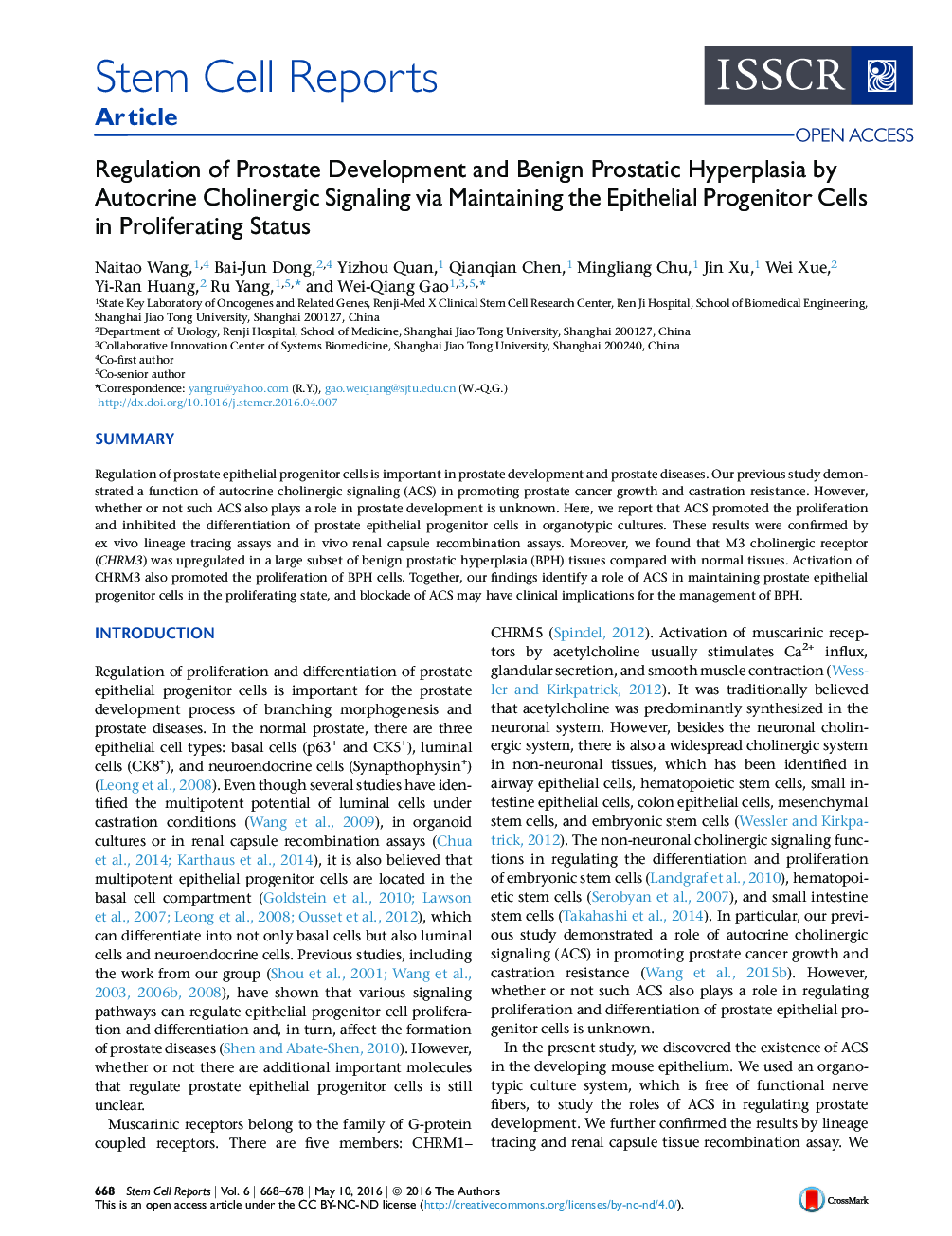| Article ID | Journal | Published Year | Pages | File Type |
|---|---|---|---|---|
| 2093226 | Stem Cell Reports | 2016 | 11 Pages |
•There is autocrine cholinergic signaling (ACS) in developing mouse prostate•ACS regulates proliferation and differentiation of prostate epithelial progenitors•ACS regulates prostate development through calcium signaling•CHRM3 is upregulated in a subset of BPH tissues compared with normal tissues
SummaryRegulation of prostate epithelial progenitor cells is important in prostate development and prostate diseases. Our previous study demonstrated a function of autocrine cholinergic signaling (ACS) in promoting prostate cancer growth and castration resistance. However, whether or not such ACS also plays a role in prostate development is unknown. Here, we report that ACS promoted the proliferation and inhibited the differentiation of prostate epithelial progenitor cells in organotypic cultures. These results were confirmed by ex vivo lineage tracing assays and in vivo renal capsule recombination assays. Moreover, we found that M3 cholinergic receptor (CHRM3) was upregulated in a large subset of benign prostatic hyperplasia (BPH) tissues compared with normal tissues. Activation of CHRM3 also promoted the proliferation of BPH cells. Together, our findings identify a role of ACS in maintaining prostate epithelial progenitor cells in the proliferating state, and blockade of ACS may have clinical implications for the management of BPH.
